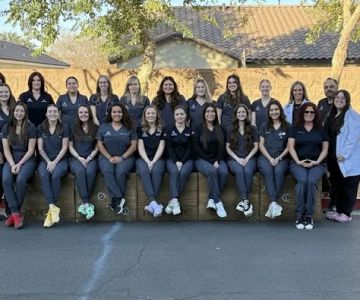What is Veterinary Biomedical Sciences? Understanding Its Importance and Scope
When I first learned about veterinary biomedical sciences, I was intrigued by the depth of research and scientific knowledge that this field encompasses. Many people are familiar with veterinary care for pets, but veterinary biomedical sciences is a specialized area that focuses on understanding animal health, diseases, and potential treatments. If you’re like me and want to dive into the scientific side of veterinary care, this field offers both exciting challenges and opportunities. In this article, I’ll break down what veterinary biomedical sciences is and why it’s an essential field of study.
1. The Basics of Veterinary Biomedical Sciences
Veterinary biomedical sciences is a branch of research that combines biology, chemistry, and medicine to understand the biological processes in animals, their diseases, and how to treat them. As someone passionate about animals and science, I was amazed to learn how the integration of these fields helps us better understand everything from infectious diseases to genetic disorders in animals.
1.1 The Role of Biomedical Sciences in Veterinary Medicine
In veterinary biomedical sciences, researchers and scientists study how animals function on a biological level. The field involves studying anatomy, physiology, and microbiology, which is crucial for diagnosing diseases and developing treatments. Veterinarians and biomedical scientists work together to improve our understanding of animal health, which ultimately leads to better treatment plans and preventive measures for animals worldwide.
1.2 Veterinary Biomedical Sciences vs. Traditional Veterinary Medicine
While traditional veterinary medicine focuses on diagnosing and treating illnesses in animals, veterinary biomedical sciences takes a deeper dive into the causes and mechanisms of diseases. It’s all about research—research into how animals’ bodies work, how they react to diseases, and how to develop advanced medical technologies for diagnosis and treatment. For instance, advancements in surgical techniques and drug therapies for animals often come from the findings of biomedical science research.
2. Key Areas of Focus in Veterinary Biomedical Sciences
Now that we understand the basics, let’s take a closer look at the key areas where veterinary biomedical sciences plays a pivotal role. This field is vast and covers many different aspects of animal health. Below are some of the major areas of focus.
2.1 Animal Disease Research
Animal disease research is one of the most important aspects of veterinary biomedical sciences. It involves studying various diseases that affect animals, such as zoonotic diseases (diseases that can be transmitted from animals to humans), infectious diseases, and chronic conditions like arthritis. Researchers in this area work tirelessly to find new treatments and vaccines that can prevent or cure these diseases. I learned that by studying how animals get sick and how their immune systems react, biomedical scientists can contribute significantly to the development of better healthcare solutions for animals.
2.2 Veterinary Diagnostics and Imaging
Another fascinating area is veterinary diagnostics. Biomedical sciences play a critical role in the development of diagnostic tools that help veterinarians identify conditions more quickly and accurately. For example, advanced imaging techniques such as MRI scans and CT scans are used to examine internal injuries and diseases in animals. These tools are often developed through biomedical research, providing veterinarians with more precise ways to assess an animal’s condition and create targeted treatment plans.
2.3 Genetic Research and Therapy
Genetic research in veterinary biomedical sciences focuses on studying the genetic makeup of animals to understand how genetic disorders develop and how they can be prevented. One area that I find particularly interesting is gene therapy, which holds the potential to treat genetic conditions that have previously been untreatable. For example, some researchers are investigating how gene therapy can be used to treat inherited blindness in dogs, which has shown promising results. Genetic research could open up a world of possibilities for animal healthcare in the future.
3. How Veterinary Biomedical Sciences Impacts Animal Healthcare
The impact of veterinary biomedical sciences on animal healthcare cannot be overstated. Thanks to biomedical research, we now have the tools and knowledge to treat a wide range of animal illnesses more effectively. From better vaccines to advanced surgical techniques, this field has revolutionized how veterinarians care for animals. As I read about various studies and breakthroughs, I realized that many of the treatments we take for granted in veterinary clinics today were made possible by the hard work and dedication of scientists in this field.
3.1 Advancements in Veterinary Medications
One of the most significant ways veterinary biomedical sciences has impacted animal healthcare is through the development of better medications. New treatments for chronic conditions like arthritis or cancer in animals have become possible through research in this field. For example, some medications used to treat feline hyperthyroidism or canine diabetes were developed with the help of veterinary biomedical research. These advances allow animals to live longer, healthier lives and improve the quality of care they receive from their veterinarians.
3.2 Improved Surgical Procedures and Animal Care
Surgical procedures have also become much more advanced, thanks to veterinary biomedical sciences. New surgical tools and techniques, like minimally invasive surgeries and robotic-assisted surgeries, are all outcomes of this field. These innovations make surgeries safer and less stressful for animals, resulting in quicker recovery times and fewer complications. It’s incredible how much better the care has gotten over the years, and much of that progress is due to scientific research.
4. Career Opportunities in Veterinary Biomedical Sciences
If you’re someone who’s considering a career in veterinary care or biomedical sciences, the possibilities are vast. This field offers a wide range of career paths, from laboratory research to clinical trials, and even working with animal shelters to develop new treatments. I’ve found that many universities offer specialized programs in veterinary biomedical sciences, allowing students to dive deep into the subject while gaining hands-on experience in labs and clinics. It's a perfect choice for anyone passionate about animals and science!
4.1 Educational Pathways
To pursue a career in veterinary biomedical sciences, a strong background in biology, chemistry, and animal science is essential. I recommend looking into universities that offer specific programs or departments dedicated to biomedical sciences. Many students start by earning a bachelor's degree in biology or veterinary science and then move on to advanced degrees like a Master's or Ph.D. in biomedical science, where they can specialize in animal health or disease research.
5. The Future of Veterinary Biomedical Sciences
The future of veterinary biomedical sciences is bright, with so many exciting possibilities on the horizon. As technology continues to improve, new diagnostic tools, treatments, and vaccines will emerge, making veterinary care more efficient and accessible. I am particularly excited about the potential for artificial intelligence and machine learning to assist in the diagnosis and treatment of animal diseases. These advancements could lead to faster, more accurate diagnoses, saving lives and improving the quality of care for animals everywhere.











